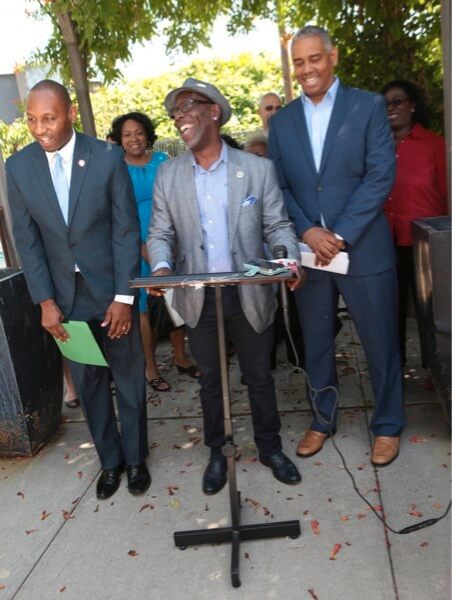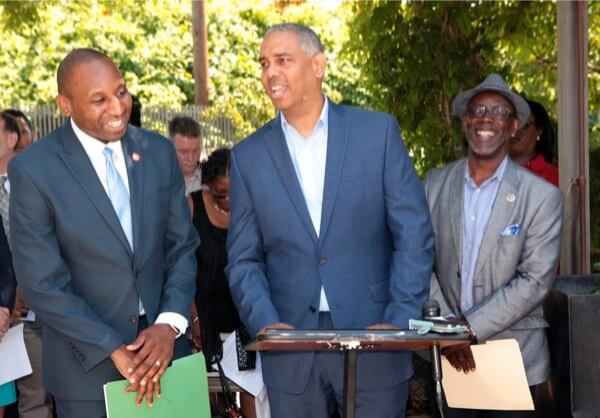By Patrick Donachie
Southeast Queens lawmakers celebrated the start of a foreclosure buyback program to protect families with distressed mortgages from losing their home, an approach that they touted as being the first of its kind in the nation.
“It’s a day of smiles and joy, and they are few and far between in this battle,” New York City Councilman I. Daneek Miller (D-St. Albans) said during a news conference held outside of the Curtis “50 Cent” Community Garden in Jamaica Tuesday.
The buyback program is funded in part with $2 million allocated by the City Council and will buy the foreclosure notes for 24 distressed mortgages throughout the city. Councilman Ruben Wills (D-Jamaica) said eight of the mortgages were in Jamaica alone, and a large portion of the notes were in southeastern Queens, an area which has experienced more than 9,000 foreclosures in the past three years.
Through the program, nonprofit organizations will purchase the notes and work with homeowners to renegotiate the terms of the mortgage so they can stay in their residencies. If the homeowners still cannot afford the mortgages, the houses will be placed in the market as affordable homeownership or rental opportunities for area residents.
“This is about ensuring we take the power out of speculators’ hands and into the people’s hands,” Councilman Donovan Richards (D-Laurelton) said. “It’s very hard on people who are working people, who are living check to check to make those payments and this is a shot in the arm for them.”
Foreclosed mortgages put on sale by banks would often be purchased by investment firms or hedge funds like Blackstone Lone Star Fund, the largest owner of single-family homes in the United States. Miller noted that investors had brought the majority of foreclosed homes in southeastern Queens in recent years and homeowners need to be reached earlier with education about predatory practices on the part of speculators.
“There is a stigma attached to foreclosures. They don’t tell family members, friends or clergy,” he said. “We get the call in the 11th hour when the marshals are at the door and we can’t save homes that way.”
Additional funds for the buyback program came from settlements state Attorney General Eric Schneiderman won over financial abuses in 2012 as well as from Goldman Sachs’ Urban Investment Group. Miller said lawmakers had to work to ensure that the funds generated from such settlements would go toward areas hard hit by the foreclosure crisis and unscrupulous speculators rather than the state’s general fund.
“Communities greatly impacted by the foreclosure crisis are the ones who should be made whole,” he said.
According to Richards, the families in the 24 homes that were purchased via the buyback program will be notified shortly.
Reach reporter Patrick Donachie by e-mail at pdona




































